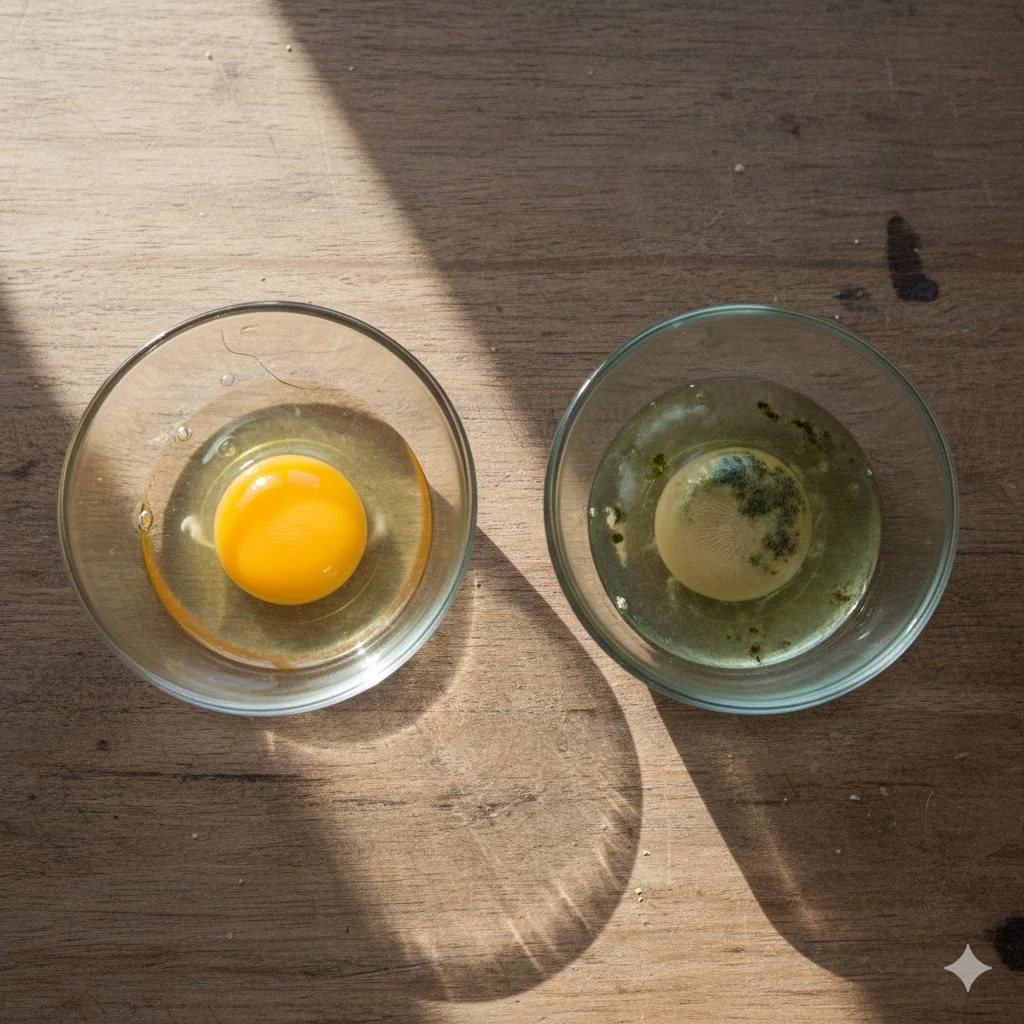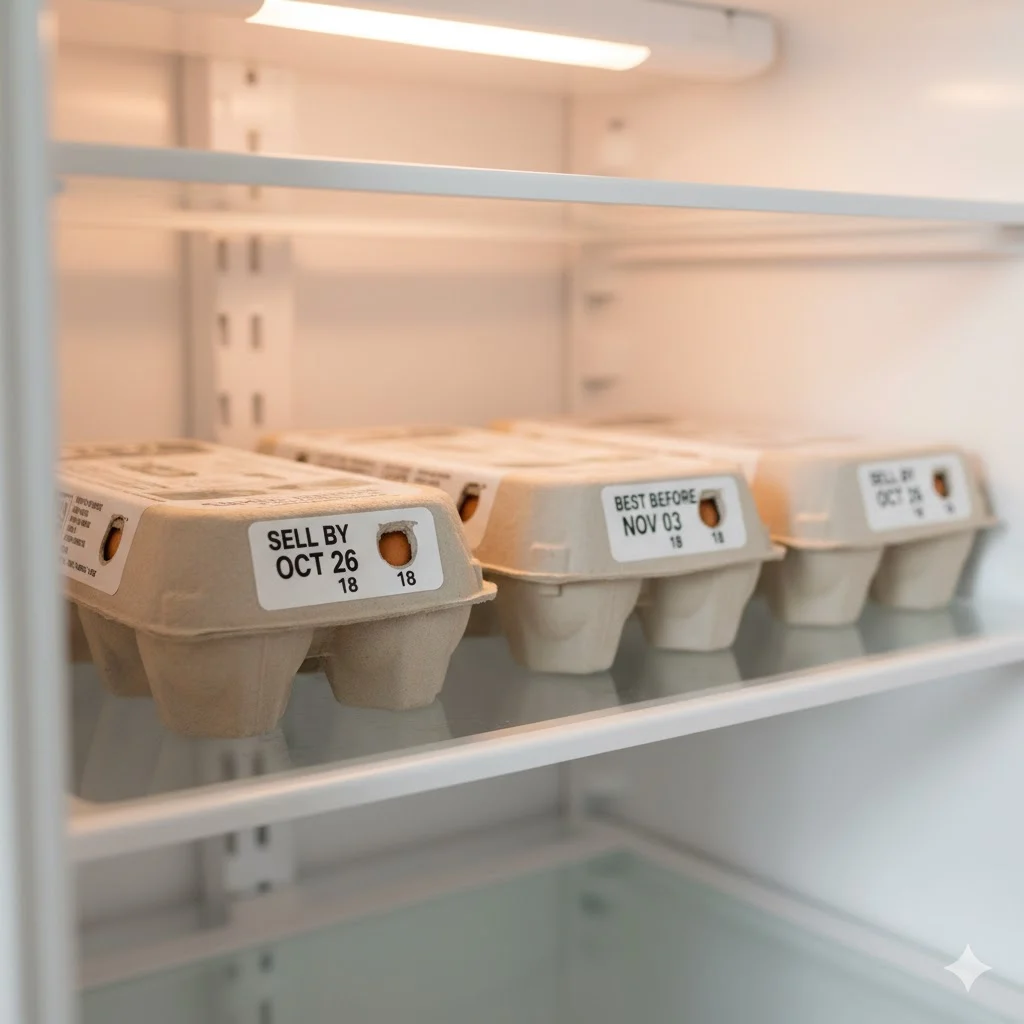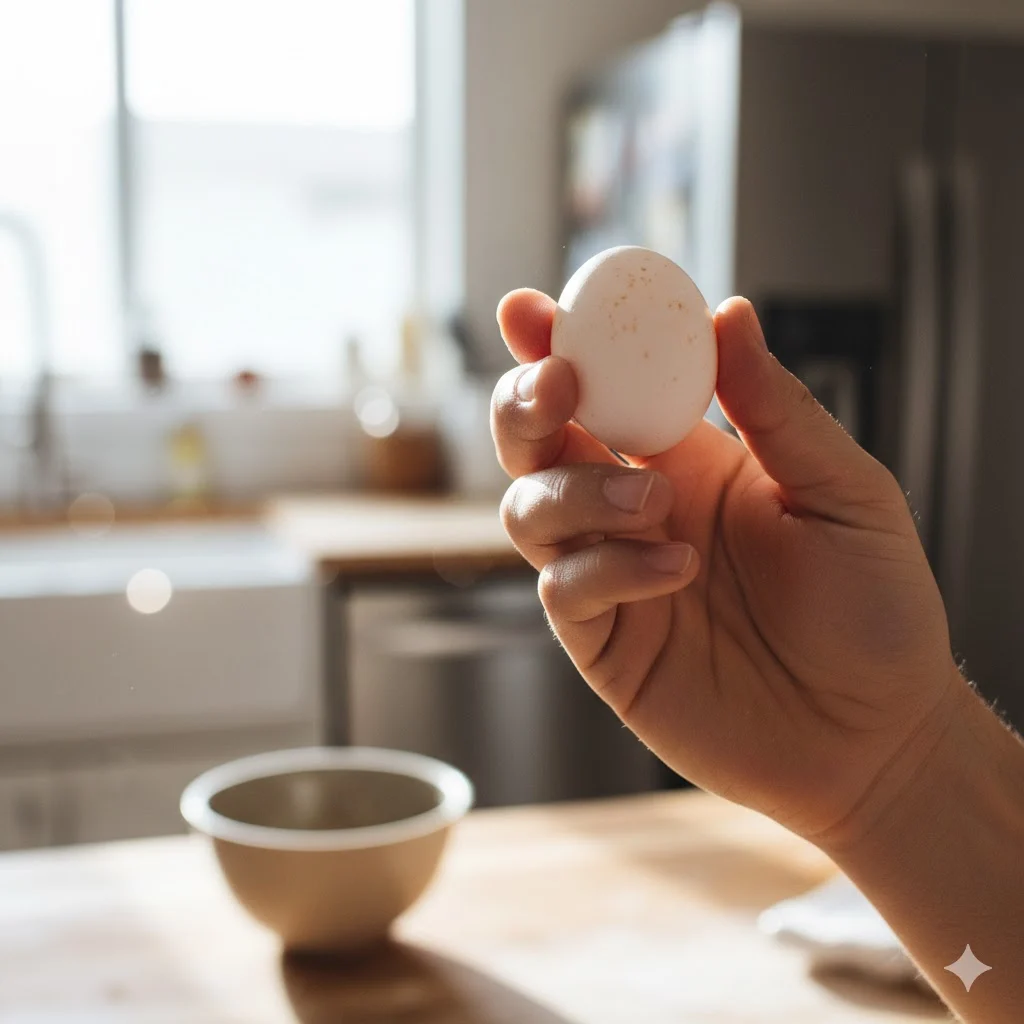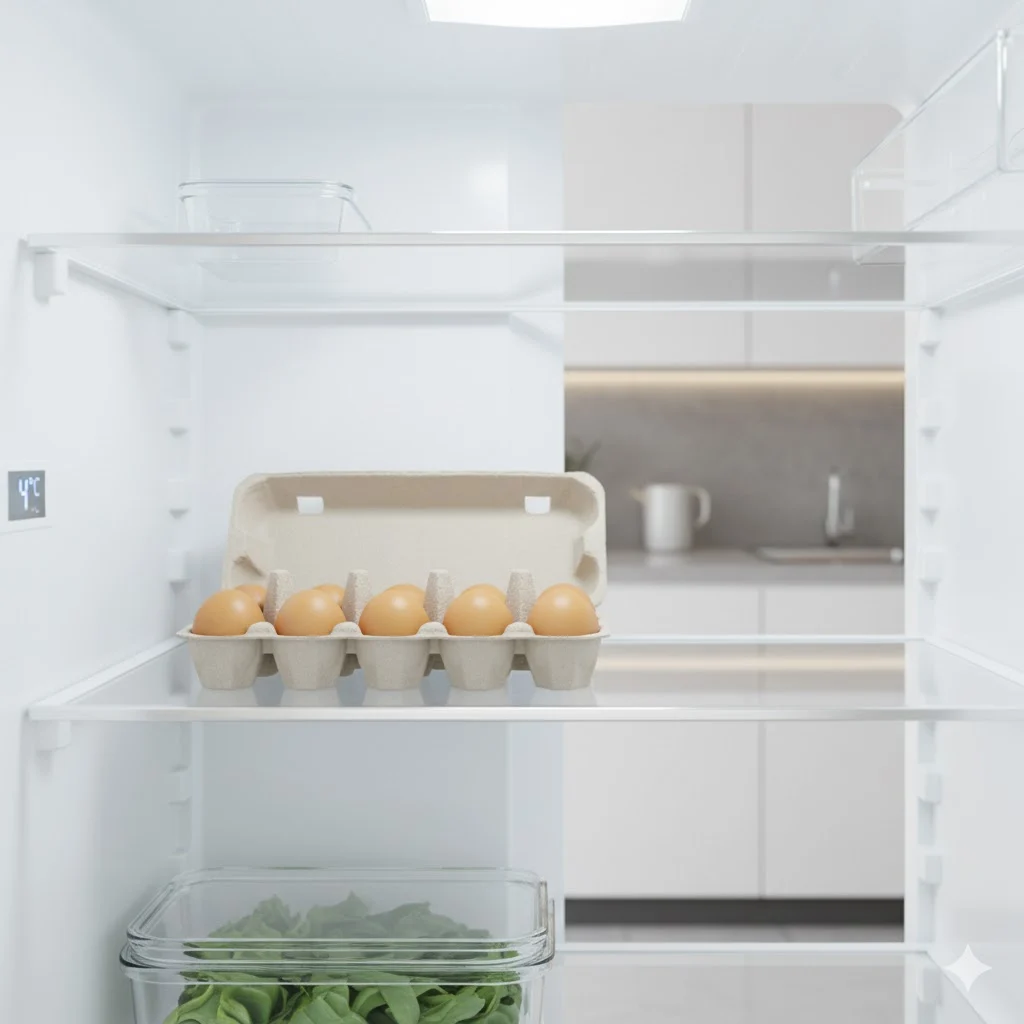Ever found a carton of eggs in your fridge and paused — “Wait, when did I buy these?” You’re not alone. Millions of people throw away eggs every year because they’re unsure if they’re still good. But here’s the truth: you don’t need to guess.
Knowing how to tell if eggs are bad isn’t just about saving money — it’s about protecting your health and cooking with confidence.
Whether you’re a home chef, baker, or just love a good sunny-side-up breakfast, this complete guide reveals scientifically backed tests and kitchen-smart tricks to check egg freshness — no special tools needed.
By the end, you’ll know exactly how to test eggs for freshness, how long eggs last, and the best way to store them safely.
🧪 1. The Float Test — The Most Reliable Way to Check Egg Freshness

The float test is the most famous and reliable method for knowing if an egg is still good. It’s simple, safe, and surprisingly accurate.
Why it works:
As eggs age, moisture and carbon dioxide escape through the shell’s pores. Air takes their place, forming an air pocket inside the egg. The larger that pocket grows, the lighter the egg becomes — eventually causing it to float.
How to do it:
- Fill a bowl or glass with cold water (room temperature won’t work as well).
- Gently place your egg in the water.
- Observe what happens.
| Position in Water | Meaning | What to Do |
|---|---|---|
| Sinks to the bottom & lays flat | Super fresh | Use for frying, poaching, or baking. |
| Sinks but stands upright | Slightly older but still safe | Great for hard-boiling or scrambled eggs. |
| Floats to the top | Spoiled | Discard immediately. |
💡 Pro Tip:
Older eggs peel easier when boiled because the air pocket helps separate the shell from the white — a handy kitchen trick!
👃 2. The Smell Test — The Instant Spoilage Detector

If you only remember one method, make it this one: trust your nose.
Even the tiniest whiff of a rotten or sulfur-like smell means your egg is bad.
Fresh eggs, by contrast, have almost no odor at all.
How to test:
- Crack the egg into a clean bowl.
- Sniff right away before mixing with other ingredients.
- If it smells off — throw it away without hesitation.
“Bad eggs have a smell you’ll never forget — once you’ve smelled it, you’ll always recognize it again.”
👀 3. The Visual Test — Check Before You Cook

Your eyes can tell you a lot about egg quality and safety.
What to look for before cracking:
- Clean shell: Free from cracks, mold, or sticky residue.
- Powdery or slimy shell: May indicate bacterial or fungal growth — unsafe.
What to look for after cracking:
- Cloudy whites: Means the egg is very fresh.
- Clear and thin whites: Slightly aged but safe if odor-free.
- Pink, green, or iridescent colors: Indicate bacterial contamination.
- Dark spots inside: Could be mold — discard immediately.
💡 Tip: Always crack eggs one by one into a small bowl before adding to your recipe — just in case one is spoiled.
📅 4. Understanding Egg Dates — “Sell By,” “Use By,” and “Best Before”

The dates printed on your egg carton can be confusing, but they don’t necessarily mean your eggs are bad the moment that date passes.
What each label means:
- Sell By: The store’s recommendation for freshness. Eggs are usually safe for 3–5 weeks after this date if kept refrigerated.
- Best Before/Best By: Indicates peak quality, not safety.
- Expiration (EXP): After this date, quality and safety may decline — test before using.
Storage tip:
Keep eggs in their original carton, placed inside the fridge (not on the door) where temperature is stable. Constant door movement accelerates spoilage.
🥄 5. The Shake Test — Quick, But Not Foolproof

This is a handy method when you’re short on time.
How to do it:
- Hold the egg close to your ear and shake it gently.
- No sound? Fresh egg — yolk and white are still firm.
- Sloshing sound? The egg has aged — the insides have thinned.
This test works in a pinch, but always double-check with the float or smell test if you’re unsure.
🌡️ 6. Temperature and Storage Matter More Than You Think

Did you know improper storage causes more eggs to go bad than age itself?
Egg storage best practices:
✅ Store at below 40°F (4°C).
✅ Keep in the original carton — it protects against odors and moisture loss.
✅ Don’t wash eggs until right before use. Washing removes the egg’s natural cuticle (the outer coating that protects it from bacteria).
✅ Avoid leaving eggs at room temperature for more than 2 hours — bacteria like Salmonella thrive in warmth.
🍳 7. Cooked Eggs — How to Tell If Boiled or Scrambled Eggs Are Bad

Bad eggs don’t just exist raw — cooked eggs can spoil too.
Signs your cooked eggs are bad:
- Off smell (especially sulfur or sour tones).
- Slimy or chalky texture.
- Discoloration (gray or greenish yolks that smell unpleasant).
- Leftovers over 7 days old — time to toss.
Always store boiled eggs in the fridge and eat them within one week.
⚠️ Why It’s Dangerous to Eat Bad Eggs
Spoiled eggs can harbor Salmonella bacteria, leading to food poisoning symptoms like nausea, cramps, fever, and vomiting.
Children, pregnant women, and the elderly are especially at risk.
Even one contaminated egg can make you seriously ill — so it’s always better to be safe than sorry.
🧠 Bonus Tips: Extending Egg Freshness Naturally
If you buy eggs in bulk, here’s how to make them last longer:
🥚 Freeze your eggs:
- Crack, beat lightly, and freeze in ice cube trays.
- Each cube = roughly one egg.
🥚 Use lemon or vinegar wash:
- A mild rinse can extend shelf life by killing surface bacteria (optional, only if you plan to cook soon).
🥚 Label cartons by purchase date:
- Helps you use older eggs first.
🥚 Frequently Asked Questions (FAQs)
1. How can I tell if eggs are still good after the expiration date?
Use the float test and smell test. If the egg sinks and doesn’t smell, it’s safe even after the printed date (for up to 4–5 weeks).
2. Can you eat eggs that float in water?
No. Floating eggs indicate a large air pocket and bacterial contamination — they’re no longer safe to eat.
3. How long do eggs last in the fridge?
Typically 4–5 weeks beyond the “Sell By” date when stored properly. Cooked eggs last up to 1 week.
4. Can you get sick from old eggs if cooked thoroughly?
Cooking kills most bacteria, but toxins from spoiled eggs can remain — so avoid using bad eggs altogether.
5. What’s the difference between brown and white eggs?
Only the breed of hen! Both spoil at the same rate and can be tested the same way.
6. Can you tell if eggs are bad without cracking them?
Yes — use the float test or shake test to get a clear idea before cracking.
🧾 Conclusion
Learning how to tell if eggs are bad is one of the most practical kitchen skills you’ll ever master. By combining simple methods like the float test, smell test, and visual check, you’ll always know which eggs are safe to eat — and which ones belong in the trash.
Key takeaways:
- Fresh eggs sink and don’t smell.
- Bad eggs float, smell foul, or look discolored.
- Proper storage keeps eggs safe for weeks beyond their date.
So next time you’re unsure, test your eggs — and cook with confidence. 🍳




